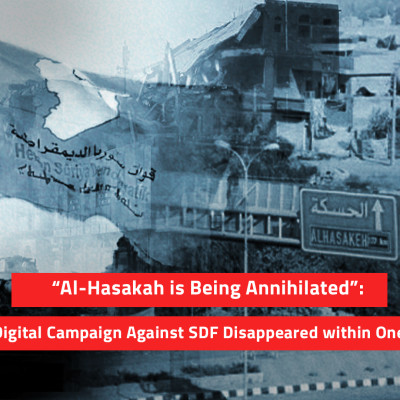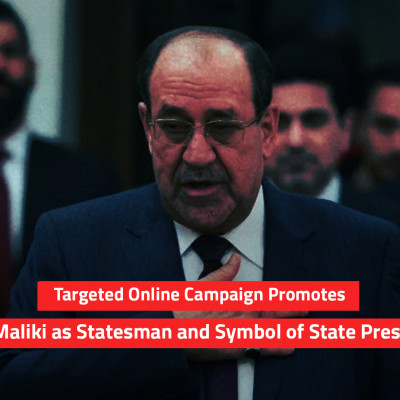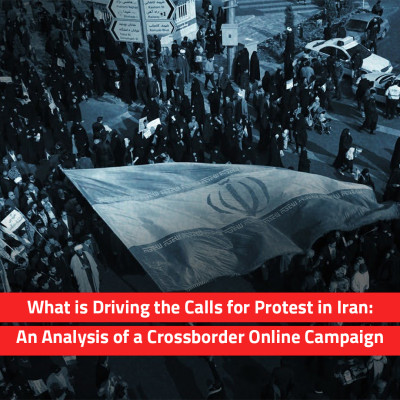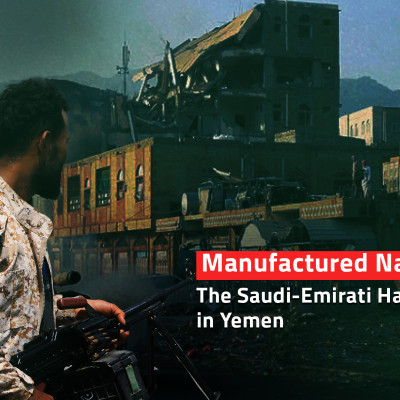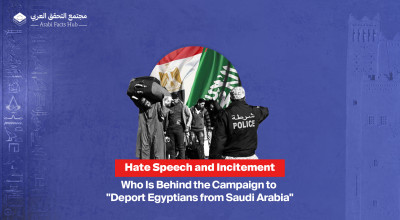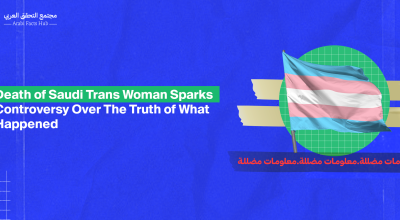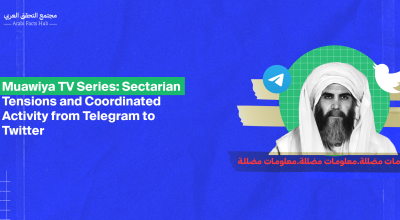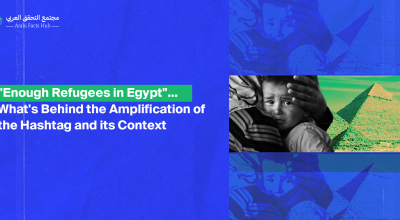Produced by the UAE and Banned by Saudi Arabia: Coordinated Disinformation Campaign Against “The Life of Goats”
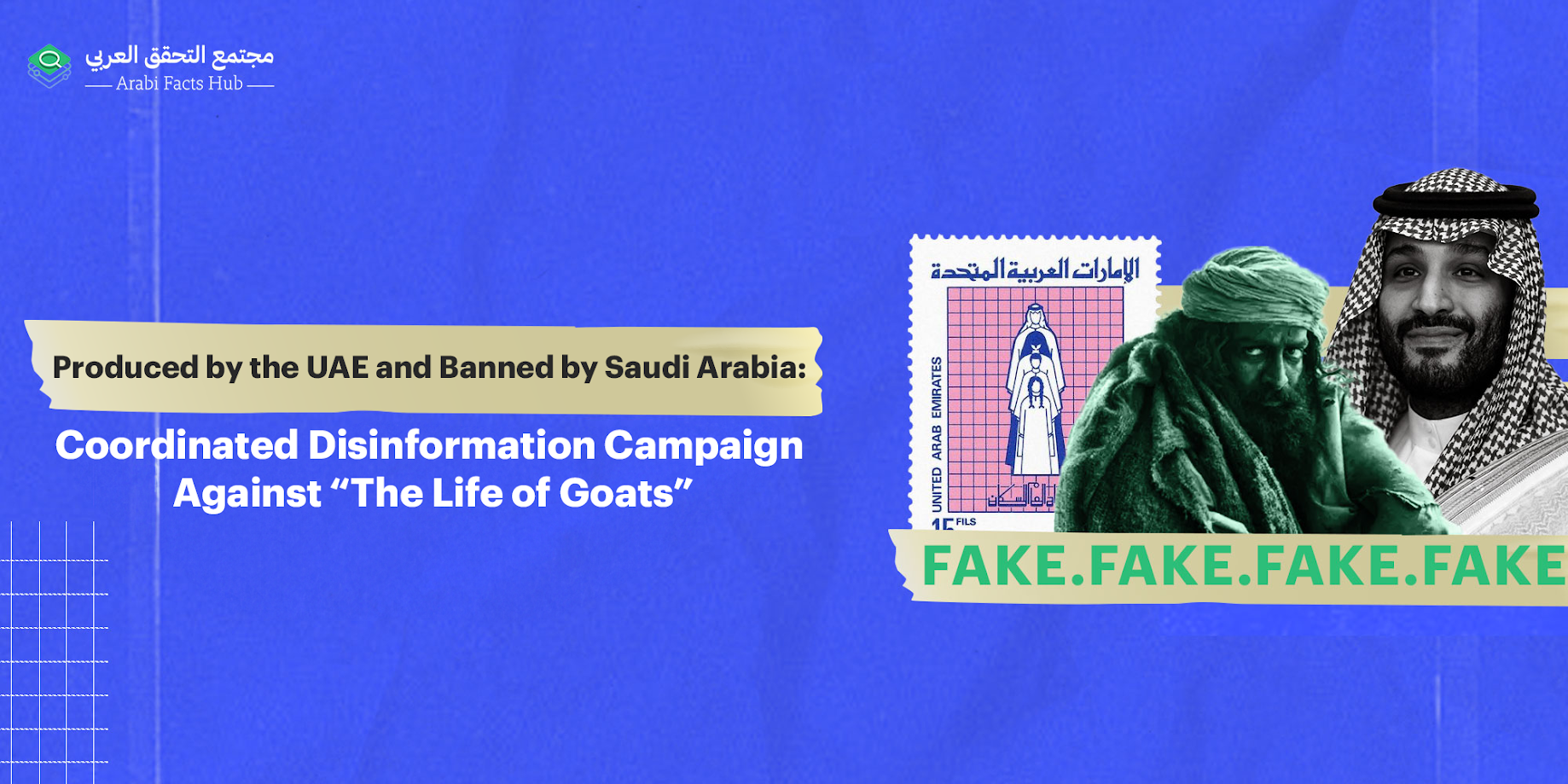
The screening of the Indian film The Goat Life sparked a coordinated Saudi online campaign, accompanied by the spread of disinformation. The campaign aimed to whitewash the Kingdom's reputation regarding its treatment of foreign workers and launched a counter-attack against the filmmakers, including hate speech directed at Indians.
_____________________________________________________________________________________
Netflix streamed the film The Goat Life in August 2024, months after its release in India in March of the same year, sparking widespread controversy, especially in Saudi Arabia and the Gulf countries. The film shares the same title as a novel published in 2008, and its producers claim it is based on a true story about an Indian migrant who faced harsh conditions in Saudi Arabia and worked as a goat herder after being kidnapped upon his arrival in the country.
Saudi Arabia did not officially comment on the film, but unofficial virtual groups took it upon themselves to coordinate a response, which involved disinformation and hate speech, particularly directed at Indians. Numerous organized hashtags appeared on social networks, such as: #Cow_Slaves, #Saudi_Arabia_Is_A_Red_Line, #Saudi_Arabia_SecondBestCountryForExpats. These hashtags included around 5,000 posts on X, viewed 1.295 million times. The posts generated 14.4 thousand interactions (likes, retweets, comments) according to statistics from Meltwater, a tool specializing in social media content analysis.

Timing of appearance of #Cow_Slaves – Meltwater
Most Influential
A total of 3,204 accounts contributed to fueling posting through the three hashtags, according to the analysis site. Additionally, Saudi accounts with hundreds of thousands of followers helped spread this campaign.
The film triggered well-known Saudi accounts and groups that frequently launch political influence and propaganda campaigns to support the Kingdom. These accounts played a significant role in shaping online reactions to the movie. Most of them featured images of Saudi King Salman bin Abdulaziz and Crown Prince Mohammed bin Salman, using their profiles and bios to display nationalist propaganda and hashtags.
Among these accounts, @Columbuos stands out. When the account first appeared on X in 2015, it was run by a Yemeni female who opposed the Saudi presence in Yemen. However, it suddenly transformed into an account that promotes Saudi nationalist propaganda and launches smear campaigns and divisive topics that stir tensions between Saudis and other Arab populations, according to a previous analysis we conducted on this account. The account has more than 600,000 followers and identifies itself as a 'social influencer.' Our research shows that “Columbuos” was the first to reactivate the hashtag #Cow_Slaves, in a quote tweet replying to another account that praised Omani actor Talib Al Balushi, one of the film's stars. It is worth noting that the hashtag has surfaced sporadically over the past ten years in various contexts.
In a post, published at 4 a.m. on August 23, “Columbuos” responded to the account defending the Omani actor by saying, 'Congratulations, you just missed the hashtag #Cow_Slaves,'. The hashtag has generated 1,746 posts out of total campaign posts.
Propaganda, Repetitive Content, and Misinformation
In the first hour of the hashtag's launch, the account Columbuos used it to attack critics and opponents of the Saudi government. Several posts were published, one of which included a collage of these critics’ posts about the film The Goat Life, with a satirical background image of a Hindu man worshiping a cow.
Columbuos described the opponents of the Saudi government as "traitors to the nation" and stated that "their celebration of the film... proves that everything they and their followers are doing is a war on the homeland, its people, its government, as well as their culture and identity."
He added that "the new #Cow_Slaves did not bother to look into the plight of oppressed Muslims in India and their lives, but instead, they focused on #The_Goat_Life."
The image posted on Columbuous was later shared widely by numerous accounts using the hashtag, with some sharing it without any comment. These practices suggest mobilization and coordinated activity.
In addition to mocking Hindu religious rituals, many of the posts using the hashtag contained hate speech directed at Indians in general, using insults such as 'spineless' and 'lacking in integrity.' This can be seen in the most frequently repeated words in the word cloud for the hashtag. Accounts participating in the hashtag attacked the film, claiming that it does not reflect the true situation of labor in Saudi Arabia. They also launched an attack on the actors involved, including Talib Al Balushi, labeling him as 'insignificant' and a 'scoundrel' seeking fame."
Some accounts promoted an alternative narrative to what truly happened with the Indian man on whom the film was based, citing an old video from the 'Al Majd' channel. In the video, Saudi storyteller Abdulrahman Al D’eilej claims that the Indian man was not mistreated but, on the contrary, was treated well, in an attempt to refute the film's claims. This was accompanied by a campaign casting doubt on the film's plot, with accusations against the novel's author and the film's director of 'distortion and forgery,' claiming that they were targeting Islam and Arabs.
Conversely, rumors circulated suggesting that Saudi campaigns on social media had led to the removal of The Goat Life from Netflix, which proved to be false, as the film remains available for viewing. Additionally, misleading claims were shared, alleging that Saudi Minister of Entertainment Turki Al Sheikh had purchased Netflix to remove the film, a claim that has not been verified.
One account that spread these rumors was @sapp897, features a profile picture of Crown Prince Mohammed bin Salman and identifies as 'Salman's daughter and Mohammed's sister.' The post was tagged with several related hashtags, but notably included #Salman_Electronic_Army, an online group estimated to have thousands of members, known for launching propaganda and smear campaigns. We had previously highlighted the role of this group in earlier analyses.
Some accounts posted promotional content highlighting the status of expatriates in Saudi Arabia, citing research findings such as a Business Insider report that ranked the Kingdom as the second-best country for expats. The hashtag #Saudi_Arabia_Second_Best_Country_For_Expats was used in 1,767 posts. These accounts also showcased positive examples of the relationship between Indians and their Saudi employers, while contrasting this with negative examples of certain behaviors by Indians in their own country and focusing on the mistreatment faced by Muslims in India.
Similarly, Saudi media outlets, including Al Arabiya, Okaz, and Al Madina newspapers, published materials and opinion pieces harshly criticizing the film, describing it as a 'desperate ploy' and asserting that it contains 'lies, exaggerations, and sensationalism.' One article noted, 'You can criticize the sponsorship system (Kafala) as much as you like, and you can depict an individual criminal case that exists in Saudi society, as it does in all societies, but the biggest lie and the real crime committed by the film is its portrayal of law enforcement institutions.' The article further defended the Saudi state, stating that it is a “nation of law, where the law is applied equally to ministers, commoners, and princes. The history of the Saudi judiciary proves that the death penalty — the ultimate punishment that everyone tries to avoid through tribal mediation and social influence — has not spared even prominent figures in Saudi society.”
Verbal Clashes Between Saudi and Emirati Accounts
Amid the heated debate surrounding the film, verbal battles erupted between Saudi and Emirati accounts due to claims that the UAE had financed the film’s production. Although the film’s director denied these allegations, the virtual space in both countries was ignited with mutual criticism and insults.
Saudi accounts targeted Emirati figures, such as Sheikh Nahyan bin Mubarak, the former Minister of Culture, circulating a doctored image showing him with a Hindu symbol on his face. They also referenced the opening of a Hindu temple in Dubai in February 2024, using it to criticize the UAE and accuse it of supporting Indians. Emirati accounts responded with similar criticisms.
Verbal skirmishes between Saudi and Emirati accounts are common, especially regarding the countries' policies and positions. These interactions are often characterized by nationalist boasting.
The skirmishes between the two sides ended with both blaming "electronic trolls." Prominent Saudi and Emirati figures reaffirmed the strength of the relationship between the two countries. Abdullah bin Mohammed bin Butti Al Hamed, head of the UAE National Media Council, called for the "banning" of these accounts. Nevertheless, Saudi accounts celebrated their alleged victory in the verbal battle through hashtags such as #Block_Battle, #Saudis_Kings_Of_Media, and #Saudi_Tweep.


































